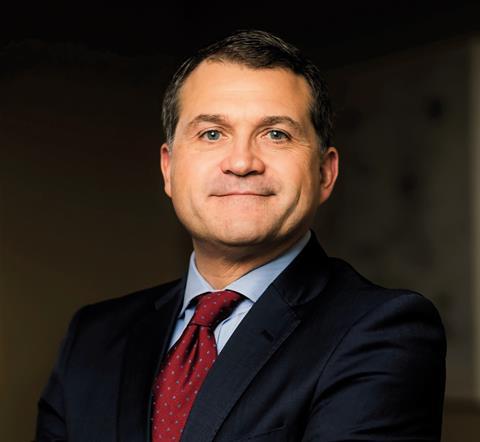City law firm profits are soaring – but how can in-house counsel ensure their advisers provide value for money as fees climb? Joanna Goodman reports
The low down
The resilience shown by the City and international law firms that have advised blue-chip corporates in the face of the pandemic, Brexit and the Ukraine war has generally been celebrated by the profession. These firms went from taking furlough money to paying it back, and then making record profits. But the billable work behind that success has come from the legal budgets of organisations that are also facing economic and geopolitical challenges. In this unenviable context, how can general counsel and in-house legal teams derive the best value from external advisers? And what is influencing how they select firms? It is not just about the money – considerations such as firms’ ‘ESG’ record are of growing importance.
Against the backdrop of Covid-19 restrictions, war in Ukraine, inflation, the continuing fallout from Brexit – not to mention political chaos in government – law firm fees have generally risen. So has lawyer remuneration. But how do in-house clients, who foot the bill for the legal sector’s celebrated resilience, feel about the value for money law firms provide?
‘Generally, I’m hearing that fees have gone up,’ says Alex Herrity, director of legal solutions at Adidas. ‘Inflation is cited as the main reason with no discernible change in service. Some canny or under-pressure GCs [general counsel] will push back hard… and a motivated GC can still shop around and find deals if willing to shift a decent amount of work to a new firm.’
Market forces
However, the UK legal services market is also more competitive. Thomson Reuters’ 2023 State of the UK Legal Market report highlighted a reduction in forecast legal spend from the second quarter of 2022, reversing the upward trend of recent years. And clients are indeed willing to shop around: 45% of UK legal clients have adjusted their law firm rosters in the past year. In London, competition is intensified by an increased presence of US law firms looking to expand into the UK and Europe, while some corporates are retaining more work in-house as part of a drive for efficiency and cost savings.
According to the report: ‘The message is clear: firms need to reconsider how they present and deliver value to clients. The key lies in understanding and meeting client needs… In short, law firms need to demonstrate that they can act not just as a legal adviser but also as a business partner.’
'The intention is not to throw hours at matters. We pay our firms the same retainer every month, so if they can spend less time and we are happy with the results, the system works for everyone'
Alessandro Galtieri, Colt Technology Services
Alessandro Galtieri, deputy general counsel at Colt Technology Services, believes that the increase in hourly rates is fuelling the tendency for general counsel to manage legal services procurement differently. ‘We ask for fixed or capped quotes for most of our work,’ Galtieri says. He explains that a fixed-fee retainer is not just about managing billable hours, but also increasing efficiency and effectiveness.

‘Associates understand that if they solve my issue in 10 minutes instead of two hours, they can spend the remaining hour and 50 minutes working on another client’s billable matter,’ he says. ‘Because they will get the same money from me anyway, instead of sending me a 20-page memo that covers all eventualities, they work hard to understand the context of the issue and deliver what I need. This helps us enormously, not just with containing the spend, but because we get better-quality advice. The intention is not to throw hours at matters. We pay our firms the same retainer every month, so if they can spend less time and we are happy with the results, the system works for everyone.’
This arrangement gives law firm associates valuable insight into in-house legal operations. ‘Law firms spend a lot on training lawyers to have commercial acumen,’ explains Galtieri. ‘This is effectively training associates to solve problems in the way the clients want – providing relevant, focused advice, while gaining an insight into the client’s business.’
Commercial nous
The Thomson Reuters report found that while technical expertise is a given and specialist expertise is important, the main differentiators for external firms are commerciality and in-depth knowledge of the client’s business.
While the latter underpins client satisfaction, a surprisingly small number of firms have established a feedback loop. According to the report, while firms that have formal client feedback programmes on average received more than one-third (34%) of their clients’ external spend compared with the baseline of 14%, only 29% of the UK clients surveyed reported that their law firms have sought their feedback, and two-thirds of that segment saw no change in service as a result.
Price is not always the overriding factor in law firm selection. Colt Technologies is in the midst of a major acquisition. ‘It is a complicated deal that will take a year between signing and closing, and we are using Baker McKenzie for a lot of the work, including integration after the deal is done,’ says Galtieri. ‘Of course with such a large transaction, significant legal fees are inevitable, but the speed and quality of the advice are crucial. I had one call with 10 partners on it. The hourly cost was astronomical, but I needed all their expertise.
‘Value can be in specialism or scale. For example, if we are buying 42 companies in 28 countries we need a firm with a global footprint. If it’s a “bet the company” transaction or litigation, we need the right expertise.’
'It’s not always the cheapest quote in a reverse auction that wins the business. It’s often about who’s more realistic and pragmatic'
Anthony Kenny, GSK
Anthony Kenny, assistant general counsel, corporate and CBS at global biopharma company GSK, works with firms that charge a range of fees and mostly have an international presence. He agrees with Galtieri’s assessment that value does not always relate to fees. ‘It’s not always the cheapest quote in a reverse auction that wins the business,’ Kenny says. ‘It’s often about who’s more realistic and pragmatic.’
This is particularly important for merger and acquisition deals which can run for one or two years, because it is difficult to predict the fees. ‘Value is derived from how a firm works, whether it is transparent about fees and how it manages client expectations – because GCs have to manage multiple internal stakeholders,’ says Kenny.
Kenny values long-term partnerships with external counsel who understand and are aligned with the business. ‘The best external teams feel like an extension of the GSK team,’ he says. ‘So much so that if you looked into a meeting you couldn’t tell who’s external and who’s internal. Secondments are win-win as the firm learns about the client’s business and the client benefits from the extra support.’
Another differentiator is the external firm’s willingness to build a diverse team which includes partners, and senior and junior associates. Again, this is because of the long-term nature of the major transactions that GSK is involved in. GSK requires law firms to have a truly international reach and presence.
‘Concerns about the wellbeing of fee-earners’
Andrew Cooke, GC at global business travel platform TravelPerk, supplements his team of seven lawyers with an external legal panel to support an active programme of fundraising and M&A. The RFP (request for proposal) for external panel firms is based on three goals: the value goal, which is about unique capabilities; the holistic support goal, which is about aligning with the business; and the cultural goal, which includes values, ESG and wellbeing. As the RFP states: ‘The panel is not about reducing cost.’ It requires bidding firms to appoint a relationship manager – a single point of contact between the company and the firm. So although TravelPerk is a tech business, relationships and cultural alignment are key to a cohesive legal function that delivers on business needs and expectations. The RFP goes further, specifying the company’s stance against fee-earners in panel firms working outside normal business hours, unless this is part of a pre-agreed flexible working arrangement. This extends to stating, ‘We will hold payment of fees if we have reasonable concerns about the wellbeing of fee-earners.’
Ultimately, the law firm-client relationship comes down to the work that firms put in to understand the client organisation’s business, working practices and culture, and maintain clear communication channels. While TravelPerk includes this in its official RFP, Anthony Kenny, assistant general counsel, corporate and CBS at GSK, recalls one partner in a panel firm scheduling regular catch-up calls – just to check in. ‘Of course they were interested in opportunities to work together, but they were also looking after the relationship,’ he says. ‘It’s not just about learning our business, the sector and where we fit into society; it’s also about understanding the person [making the decisions].’ And 67% of respondents to the Thomson Reuters 2023 State of the UK Legal Market survey said that recent contact with their external law firms was the critical driver to staying top of mind with buyers, as opposed to reputation, which had dropped significantly to just over 10%.
In a people business like law, trusted relationships will always play an important role. ‘I believe in a collaborative partnership model,’ says Therme’s GC Nicholas Cranfield, highlighting that typically the total cost of legal services is less than 2% of the company’s revenue. ‘I think less about the law firms and more about the people.’ This sounds like a soft skill, but Cranfield talks about the trust equation – the importance of training people in the right behaviours to develop trusted business relationships. ‘If you want firms to invest their time in you, you have to invest in them,’ he says.
Strategic approach
GCs are increasingly adopting a strategic approach to managing day-to-day legal work. The Association of Corporate Counsel’s 2023 Chief Legal Officers Survey identified the top three strategic priorities as: investment in legal operations (70%); right-sourcing legal services (45%); and cost minimisation (43%). This is reflected in the increase in alternative strategies to appointing external counsel.
One solution is insourcing – creating an internal function to handle routine processes. Galtieri offers an example: ‘When we need to lay cables in a multi-tenant building, we need a wayleave from the landlord. We used to pay an external firm to do this work, but now we have insourced it and we have a wayleave team in India. The advantage is not just cost, but the fact that we can manage the process end-to-end. We have a service delivery dashboard, so we can share data – for example we can let the team know when a wayleave has been granted and the cables can be installed. If another service provider had quoted a lower cost and the same level of data sharing, we would have gone with them, but as yet we haven’t found anyone who can do it as seamlessly and cheaply as our internal team.’
Another option is interim resourcing using alternative legal service providers (ALSPs), particularly for scale-up businesses with just one corporate counsel or small legal teams that they do not plan to expand in line with business growth. Therme Group is one such business. GC Nicholas Cranfield was previously director of global legal services at Dyson, where he led a large team and invested significantly in legal operations. At Therme, which builds and operates urban wellbeing resorts, Cranfield engages with LOD (Lawyers On Demand). LOD is an ALSP with a strong global presence via a legal services portal to serve the needs of a fast-growing scale-up building a series of international resorts. However, Cranfield emphasises that he benefits from a long-term relationship with LOD and Syke, its technology arm, that reflects his close connections with other panel firms and advisers.
Herrity agrees that on-demand legal resource providers can drive savings. ‘Typically you get more highly qualified individuals, often with relevant in-house experience who need less directional support and instructing,’ he says. ‘However, there can be pitfalls. While the on-demand resource can be tempting to backfill positions or supplement team capacity, in some instances the day rate can start to creep up on you. When you interrogate what you’ve achieved it might not live up to expectation and you’d have been better off using internal resources [at a slower pace] and using the budget for bigger/more complicated matters that required law firm support.’

Technology and flexibility
While some smaller legal teams use technology to automate straightforward contracting, when it comes to external counsel, technology can be a source of frustration. Notwithstanding the advances towards digitisation, which the Thomson Reuters report highlighted as a top priority for law firms, the Next Gen Solutions Index survey of 511 GCs by Censuswide, commissioned by Simmons & Simmons earlier this year, found that 26% of respondents feel that panel firms have inadequate technology to meet their demands.
Advances in technology also raise questions around the cost and value of legal services, and the relevance of the billable hour. ‘While there are examples of law firms deploying tech and making significant efficiencies in process which they can then pass on to their clients, I think most law firms still struggle with how they’re going to tackle the tech/automation v billable hour issue,’ says Herrity.
Andrew Cooke, GC at global business travel platform TravelPerk (valued at $1.3bn), is interested in ‘how resilient law firms’ profitability and business model will be now that a cheap, demystifying technology like AI has emerged’.
He explains: ‘It is now very simple to build models that can replicate the advice of a competent junior counsel on demand. But this “junior counsel” never sleeps, has a marginal cost of zero, and can speak any language. The checking process is way less complex than you would think… the gap between bot performance and real world human performance isn’t that big; but the upsides of bot performance, in terms of scalability and accessibility and so on, are tremendous. And they exactly align with what people want from technology. We have little use for ALSPs etc when bots can scale our workflow so effectively.’
However, he acknowledges: ‘Tech is not yet a differentiator for law firms because, in my view, individual decision-makers still believe in the power of the individual to sell premium services.’
Kenny thinks that tech has potential as a differentiator, but firms are not tapping into it. ‘Firms could do more to talk about their capabilities,’ he says. ‘While we would expect firms to use AI for transaction due diligence, we would also expect them to tell us about the tools they intended to use and how they work. Again, we expect an honest conversation, flagging up the risks and managing the expectations upfront.’ Kenny agrees with Cooke about AI’s potential. ‘We are still getting our heads around the impact of AI but businesses are looking at it to reduce work, and ultimately it will reduce the work that went to junior lawyers,’ he observes.
Law firms competing for instructions from these corporate clients should note that, post-pandemic, flexibility has become a differentiator for purchasers of legal services. Almost one-third (29%) of respondents to the Simmons & Simmons Censuswide survey said that flexible resourcing was very important to the success of their legal operations. Moving with the times, one might say.

Joanna Goodman is a freelance journalist
































No comments yet